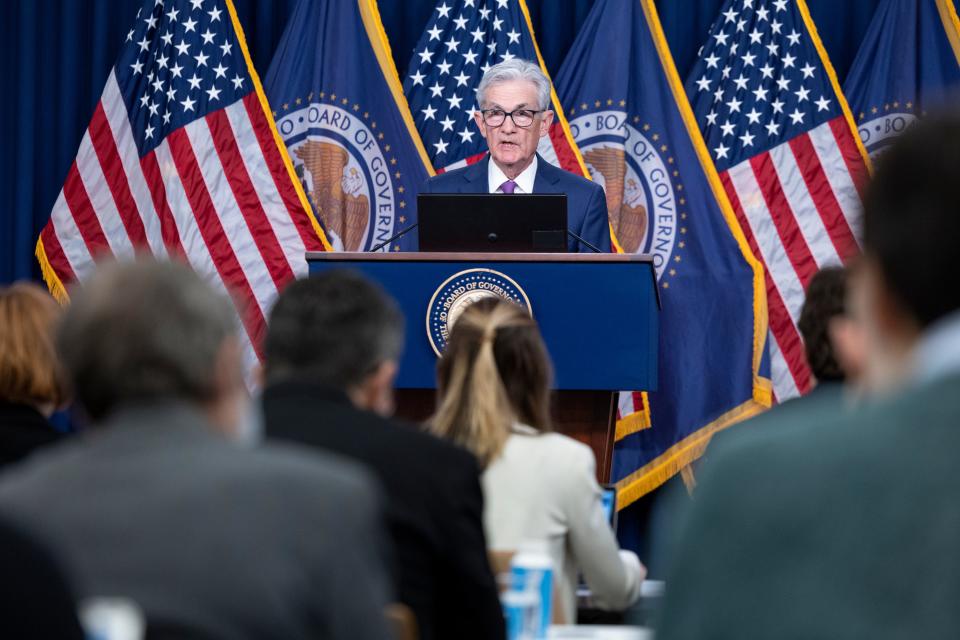Inflation defined: What is it, what causes it, and what is hyperinflation?
Inflationary headwinds have clouded economic forecasts as a new report brings mixed news.
The latest report from the U.S. Bureau of Labor Statistics showed that the price of goods and services rose 3.1% year over year in January. The reading is lower than the 3.4% in December but higher than the Federal Reserve's target rate of 2%.
Month-to month-readings saw the rate rise from .2% in December to .3% in January, raising questions about whether the Federal Reserve will cut interest rates.
Though inflation has cooled from post-pandemic highs of 9.1%, the topic remains a political factor.
The next announcement from the bureau is scheduled for March 12.
Here's what to know about inflation.
What is inflation?
Inflation is the decline of purchasing power in an economy caused by rising prices, according to Investopedia.
The root of inflation is an increase in an economy's money supply that allows more people to enter markets for goods, driving prices higher.
Inflation in the United States is measured by the Consumer Price Index (CPI), which bundles together commonly purchased goods and services and tracks the change in prices.
A slowdown in inflation is called disinflation and a reduction in prices is called deflation.

What causes inflation?
Inflationary causes include:
Demand pull: An inflationary cycle caused by demand outpacing production capabilities that leads to prices rising
Cost-push effect: An inflationary effect where production costs are pushed into the final cost
Built-in inflation: An increase in inflation as a result of people bargaining to maintain their purchasing power
Recently, some financial observers have assigned a new cause to the inflationary portfolio.
Independent financial research firm Fundstrat's head of research Tom Lee said on CNBC that corporate greed was a key driver to inflation. Lee said that core inflation was "basically" at the Federal Reserve's target of 2%.
Grocery prices rose 1.2% year over year in January but the cost of insurance rose more than 20% on average year over year, according to the latest Consumer Price Index reading.
What will Fed say about interest rates? Key economy news you need to know this week.
What is hyperinflation?
Hyperinflation is the rapid and uncontrolled increase of inflation in an economy, according to Investopedia.
The phenomenon is rare but when it occurs, the effects are devastating. Hyperinflation in Yugoslavia caused people to barter for goods instead of using the country's currency, which would be replaced by the German mark to stabilize the economy.
Hungary experienced a daily inflation rate of 207% between 1945 and 1946, the highest ever recorded.
Consumer Price Index month over month
This article originally appeared on USA TODAY: Inflation defined: What to know about causes, hyperinflation
